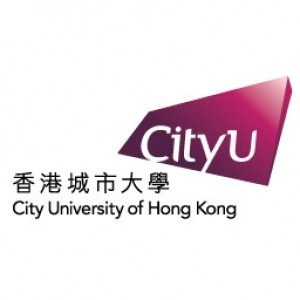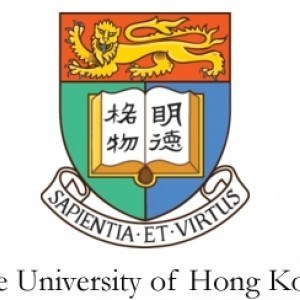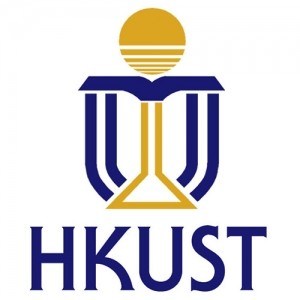Photos of university / #cityuhongkong
The Bachelor of Science in Physics and Materials Science at City University of Hong Kong is a comprehensive undergraduate program designed to provide students with a solid foundation in the fundamental principles of physics, coupled with an in-depth understanding of the properties, processing, and applications of various materials. This interdisciplinary curriculum aims to equip students with both theoretical knowledge and practical skills necessary for careers in research, industry, and academia related to physics, materials engineering, nanotechnology, and advanced manufacturing. The program emphasizes experimental techniques, computational methods, and analytical thinking, fostering students' ability to investigate and solve complex scientific problems. Students benefit from state-of-the-art laboratory facilities, collaborations with industry partners, and opportunities for research projects, internships, and international exchanges. The curriculum covers core topics such as classical and modern physics, quantum mechanics, electromagnetism, thermodynamics, condensed matter physics, materials characterization, materials synthesis, and nanotechnology. Additionally, students are encouraged to develop proficiency in programming, data analysis, and scientific communication. The program also integrates coursework on the principles of sustainable development and innovation, preparing graduates to contribute to technological advancements and societal well-being. Graduates of this program are well-prepared for further studies in graduate schools or for employment in sectors including electronics, aerospace, energy, healthcare, and environmental sciences. The Bachelor of Science in Physics and Materials Science at City University of Hong Kong is tailored to nurture versatile scientists and engineers capable of addressing the scientific and technological challenges of the modern world, fostering lifelong learning and professional growth.
- Postgraduate Seminar
- Teaching Students: First Steps
Qualifying/Annual Report Submission
Students are required to submit qualifying report and annual report in compliance to the regulations or guidelines as set by the School of Graduate Studies (SGS). Such regulations and guidelines are accessible via the guidebook located at SGS website
Thesis
The thesis is the most important part of the MPhil study. The thesis demonstrates the student’s research capacity and independent research work, and shows his/her ability to design and conduct experiments, analyze and formulate physical and engineering problems, correlate and verify data, explain problems lucidly and reach sound conclusions. The output of the thesis is based on the student’s original ideas. The MPhil thesis has to represent evident contribution to the field of study.
Requirements
- Hold a relevant bachelor’s degree with first or second class honours (or equivalent qualification) from a recognised university.
- Applicants from an institution where the language of teaching is not English should satisfy the minimum English proficiency requirements specified by both the University and individual Colleges and Schools. The University’s minimum English proficiency requirement for research degree programmes is 550 (paper-based test) or 213 (computerbased test) or 79 (internet-based test) in the Test of English as a Foreign Language (TOEFL) OR an overall band score of 6.5 in the International English Language Testing System (IELTS). Equivalent qualifications are also acceptable.
- Official certificates and transcripts of academic qualifications (Certificates and transcripts that are not in English should be accompanied by a formal certified translation in English.) [Applicants who obtained degrees from institutions that gave degree classification and/or grade point average but are not shown in the certificate or transcript are required to also send copies of any other official documents that indicate their formal degree classification or grade point average.]
- Certificates of professional qualifications, if applicable (Certificates that are not in English should be accompanied by a formal certified translation in English.)
- (In support of the applicant’s publication record, if applicable) the front page of the papers (for papers that have been published) or the letter of acceptance (for papers that have been accepted for publication). [Applicants to the School of Law must also submit a self-assessment (of not more than 400 words) of their publications together with full copies of their best three publications. Where any publication so submitted is in a language other than English, it must be accompanied by an abstract in English.]
- Nominate two academic referees who can comment on their academic performances (proposed supervisor and persons from non-academic circles are normally not acceptable as academic referees).
- A non-refundable application fee of HK$200 will be charged for each online application. Settlement of the application fee shall be made via online credit card payment.
Scholarships
- Postgraduate Studentship
- Research Tuition Scholarship
- Conference Grant
- Research Activities Fund
- Chow Yei Ching School of Graduate Studies Entrance Scholarships
The Bachelor of Science in Physics and Materials Science at City University of Hong Kong is an undergraduate program designed to provide students with a comprehensive understanding of fundamental and applied physics, along with in-depth knowledge of materials science. This multidisciplinary program aims to prepare students for careers in research, development, and industry sectors related to physics, materials engineering, and nanotechnology. The curriculum combines theoretical coursework, laboratory experiments, and project-based learning to develop students' analytical, problem-solving, and research skills. Core courses typically cover classical mechanics, electromagnetism, quantum physics, thermodynamics, and statistical mechanics, together with specialized modules in materials characterization, solid-state physics, nanomaterials, and materials processing. The program emphasizes experiential learning through laboratory work, design projects, and internships, fostering practical skills alongside theoretical knowledge. Graduates of this program are equipped with the scientific understanding and technical expertise necessary for industries such as electronics, aerospace, energy, materials manufacturing, and research institutions. The program also encourages students to engage in scientific research, collaborate in interdisciplinary teams, and develop innovative solutions to real-world problems. City University of Hong Kong’s state-of-the-art facilities include advanced laboratories, research centers, and access to modern equipment that support experimental and applied research. Students are also encouraged to participate in international exchange programs and internships to broaden their global perspective and professional network. The program typically spans four years for full-time students, with options for specialization and elective modules to tailor the education to individual career interests. Admissions are competitive and based on academic excellence, with prerequisites generally including strong performance in physics, mathematics, and related sciences. Upon graduation, students receive a Bachelor of Science degree and are well-prepared for postgraduate studies, research careers, or industry roles in physics and materials science. The program aligns with the university’s commitment to fostering innovative and impactful scientific research, emphasizing the importance of multidisciplinary approaches and technological innovation in advancing modern science and engineering.


